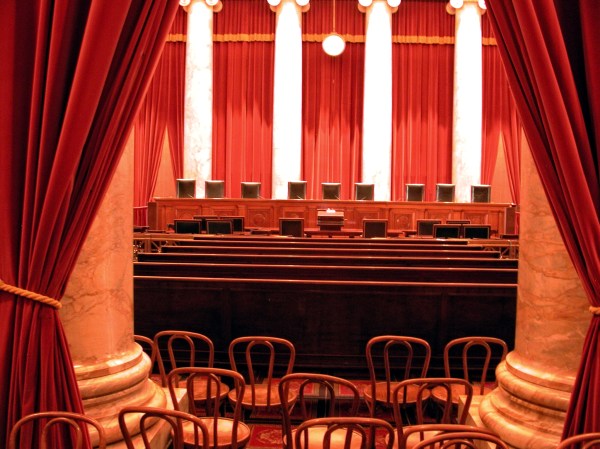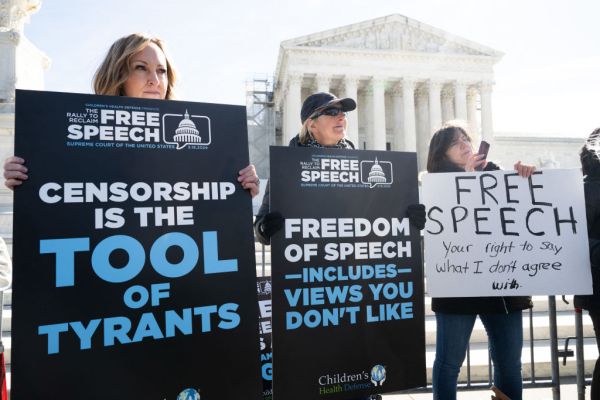Welcome back to Techne! Last week, this newsletter was off for July Fourth. So, for your moment of zen this week, here is a video from Glacier View, Alaska, of an Independence Day celebration launching cars off a cliff while blasting patriotic music.
Notes and Quotes
- Occupy Mars: A recent study by Chinese scientists suggests that Syntrichia caninervis, a resilient desert moss, could play a crucial role in terraforming Mars by enriching the planet's rocky surface to support other plant life.
- The U.S subsidizes research and development throughout the world: “If each drug had a single international price across high income OECD countries, and total pharmaceutical firm profits were held fixed, then US prices would fall by 1/2 and every other country's prices would increase by 28 to 300%.”
- A recent journal article proposes a new design for sodium batteries that eliminates the need for a traditional anode. Researchers found that using a stable solid electrolyte and applying pressure can solve common issues in sodium batteries, allowing for dense sodium metal deposition. This approach could lead to more affordable, energy-dense, and fast-charging batteries.
- A federal court in Texas has partially blocked the FTC’s ban on non-compete agreements, which was set to take effect September 4. While the preliminary injunction technically applies only to the parties in the case, legal experts suggest the decision may have broader implications, potentially signaling challenges for the FTC's rule. The court also indicated that plaintiffs are likely to succeed on the merits of their case, raising questions about the future of the non-compete ban.
- Why has U.S. manufacturing productivity stagnated for over a decade? Noah Smith outlines a few hypotheses, including insufficient investment in machinery, industry concentration, and limited exports.
- An essay by Matt Yglesias argues that considering the vast span of human existence, our modern era of technological progress and rising living standards is a remarkably brief and recent phenomenon.
- In a 5-4 decision, the Supreme Court temporarily halted an EPA rule aimed at reducing air pollution from power plants and industrial facilities in 23 states. The court's recent decisions are gradually limiting the EPA's authority, making it increasingly difficult for the agency to issue new regulations or penalize polluters.
- The Census Bureau has introduced a new category for “data centers” in its construction-spending reports. For May 2024, the total construction value of data centers stood at $2.3 billion.
- Arkansas is suing Temu, a Chinese e-commerce company, for data theft and deceptive trade practices. State Attorney General Tim Griffin alleges that Temu collects users' personal information under the guise of permissions and then sells this data, describing the company as "a data-theft business that sells goods online as a means to an end." This comes as Temu has become one of the most used e-commerce sites in the U.S.
- Indiana (along with other states) recently passed an age-verification law for porn websites, despite these regulations appearing to directly contradict long-standing Supreme Court rulings on the Communications Decency Act and the Child Online Protection Act. The Supreme Court will hear a challenge to a similar age-verification bill from Texas in the fall.
The Supreme Court Term in Review

“A film is born three times,” French filmmaker Robert Bresson once famously remarked. “First in the writing of the script, once again in the shooting, and finally in the editing.”
So too is a law. First, it is written and passed by Congress. Then, it is implemented by administrative agencies. And finally, its legality is determined by the courts.
The Supreme Court just had a blockbuster close to the term, with three major cases coming in at the end, all of which will have some bearing on the world of tech: Loper Bright Enterprises v. Raimondo on administrative law; Murthy v. Missouri on social media censorship; and the NetChoice cases on state-level social media bills.
Let's take a look at the implications of each of these pivotal cases.
Bye-Bye, Chevron. Hello, Loper Bright.
If people are talking about the Supreme Court term, they’re probably talking about the Trump immunity decision. But over in my little corner of the world, Loper Bright Enterprises v. Raimondo was easily the most talked-about case.
Loper Bright dealt with a lawsuit filed by commercial fishermen of Atlantic herring against the National Marine Fisheries Service (NMFS). They challenged the agency’s rule requiring the industry to fund at-sea monitoring programs, which were estimated to cost $710 per day. Importantly, the Magnuson-Stevens Act of 1976, which gives the NMFS power, does not does not explicitly require Atlantic herring fisheries to pay the costs of federal monitors, although some laws do require fishermen to pay. The district court supported the NMFS’s reasonable interpretation of its authority and the adoption of the rule. On appeal, the D.C. Circuit upheld the district court's decision, rooting their decision in Chevron—the 1984 landmark case that let courts defer to agency interpretations of ambiguous statutes, so long as it was a “reasonable” interpretation.
Then, in a 6–2 opinion, the Supreme Court reversed the D.C. Circuit’s decision and overturned Chevron. (If you want to learn all about the case, check out The Dispatch’s coverage here.)
The environmental left sees this decision as a loss. Jake Bittle and Zoya Teirstein, for example, reported in Grist of at least two organizations that thought this was a bad move:
“Today’s ruling sidelines the role of agency expertise, and instead shifts power to judges who do not have the expertise of agency staff who live and breathe the science, financial principles, and safety concerns that federal agencies specialize in,” Kym Meyer, the litigation director for the Southern Environmental Law Center, said in a statement.
Vickie Patton, general counsel for the Environmental Defense Fund, said the decision “undermines vital protections for the American people at the behest of powerful polluters.”
Steve Vladeck, professor at the University of Texas School of Law, also picked up on this thread, explaining on MSNBC that “the Loper Bright decision is a transfer of power.” He went on:
Agencies aren’t perfect. But neither are judges. And if the question is whether technical questions should be resolved by those with the relevant expertise who work for presidents for whom we have voted, or by generalist judges selected (and sometimes hand-picked) by plaintiffs with an ideological axe to grind, the answer shouldn’t have been this hard. Deference to executive branch agencies is something we’ll miss when (as of last Friday) it’s gone.
I tend to think the naysayers are wrong on this one. This ruling doesn’t deny that agencies are experts on technical matters. Instead, it argues that agencies don’t have the comparative expertise to interpret a statute. That’s what the courts should do.
Importantly, agency deference isn’t completely gone. As Chief Justice John Roberts made clear in his majority opinion in Loper Bright, agencies can rely on the 1944 case Skidmore v. Swift & Co. That said, Skidmore deference is a tougher standard to meet than Chevron was because agency actions have to be evaluated by (1) the thoroughness of the agency's consideration, (2) the validity of its reasoning, (3) the consistency of its interpretation over time, and (4) other persuasive powers of the agency.
Agencies will not have the leeway that they did with Chevron going forward, but that doesn’t mean their leeway is completely gone. Think of what brought this case to the Supreme Court in the first place: the Magnuson-Stevens Act didn’t explicitly say that Atlantic herring fishermen have to pay for monitoring, and yet the agency effectively rewrote the law to do exactly that.
Agencies have a tendency to push the boundaries of their authority, as I explained in the last edition of Techne about how not to expand broadband. Here’s another example: Remember when the California Supreme Court left in place a lower-court holding that bees are fish, at least for the purpose of protecting them under California's endangered species law? That’s the kind of nonsense that happens all the time with agencies. Loper Bright is warning them to cut it out.
The decision also makes it clear that prior administrative actions and court decisions decided under the Chevron deference are not automatically overturned by this decision. But Chevron is dead. Statutory interpretation has shifted back to the courts, so we should expect the courts to intervene more consistently.
I liked this summary from Neil Chilson, a former colleague of mine, on whose stock is up and whose stock is down with this ruling:
For an extended look at the first point, I would suggest reading policy analyst Adam Thierer on why the end of Chevron deference doesn't really matter all that much for AI. Here is the key paragraph:
There won’t be any formal regulations here. (In this case, NIST does not even possess any formal regulatory powers.) Moreover, none of this will go through any sort of cost-benefit analysis or APA-compliant process. Instead, it’ll all be done through those “soft law” informal guidelines and best practices, and then developers will be expected to make concessions and “voluntary commitments” to abide by them, under pressure from various government officials.
For other perspectives on this case, check out Geoffrey Manne’s thread on Loper Bright’s impact on the Federal Trade Commission and Berin Szoka’s thread on how the decision impacts communication regulation.
An anticlimactic Murthy v. Missouri resolution.
In the first edition of Techne, I previewed the Murthy v. Missouri case, which asked: “Did White House and executive agency officials violate the First Amendment by encouraging companies like Facebook and Twitter to censor posts about the COVID-19 pandemic, election fraud, and Hunter Biden’s laptop?”
Well, the Supreme Court punted by saying that the plaintiffs didn’t have standing to bring the case, so it didn’t decide on the big questions.
The Supreme Court missed an opportunity to clarify the bounds of government censorship. Robert Corn-Revere, a well-respected First Amendment scholar and chief counsel of the Foundation for Individual Rights and Expression (FIRE), explained just how unsatisfying the ruling was:
Despite reams of evidence documenting government pressure, the court held today these plaintiffs lacked standing to sue. FIRE is concerned about what this means for future First Amendment plaintiffs. But the majority opinion notes courts have the power to stop government attempts to pressure social media platforms when proven. That’s important.
Americans need to know when government officials are subjecting platforms to censorship. Since the Supreme Court will not act, this means that Congress must.
The NetChoice cases.
Finally, there were the two NetChoice cases, which were brought by a trade group representing tech companies against social media bills passed in Florida and Texas. (Full disclosure: At my previous job, we filed a brief for both cases, and I have been waiting for them to be decided for a while.)
Both NetChoice, LLC v. Paxton, which concerned the Texas law, and Moody v. NetChoice, LLC, which was about the Florida law, were vacated and remanded to the lower courts. That means that the lower courts will need to look at the issue again.
While I wish that the Supreme Court had gone further and shot down the state laws, the opinion reaffirmed the importance of the First Amendment online. Here are some of the choice quotes:
- "[The First Amendment] does not go on leave when social media are involved."
- "A State may not interfere with private actors’ speech to advance its own vision of ideological balance."
- "Texas does not like the way those platforms are selecting and moderating content, and wants them to create a different expressive product, communicating different values and priorities. But under the First Amendment, that is a preference Texas may not impose."
- "We have repeatedly held that laws curtailing their editorial choices must meet the First Amendment’s requirements. The principle does not change because the curated compilation has gone from the physical to the virtual world."
- "In a better world, there would be fewer inequities in speech opportunities; and the government can take many steps to bring that world closer. But it cannot prohibit speech to improve or better balance the speech market."
Not everyone is happy. In the New York Times, former Biden administration official Tim Wu construed these decisions as the result of the courts straying from principles. He wrote,
For much of American history, First Amendment cases involving speech typically concerned political dissenters, religious outcasts, intrepid journalists and others whose ability to express their views was threatened by a powerful and sometimes overbearing state. The First Amendment was a tool that helped the underdog. But sometime in this century the judiciary lost the plot.
I think that’s an impoverished view of the First Amendment that is sadly becoming more popular. Yes, the First Amendment has been a tool to help the underdog. But at the end of the day, it was written to constrain what the government can do. Call me old-fashioned, but I don’t think that needs changing.
Until next week,
🚀 Will
AI Roundup
- A piece by the up-and-coming tech analyst Logan Kolas outlines potential solutions to the AI patchwork regulation emerging across the states.
- MIT robotics pioneer Rodney Brooks argues that generative AI’s capabilities are being significantly overestimated by the public. He says that humans tend to overestimate generative AI's capabilities by incorrectly generalizing its performance on specific tasks to a broader range of human-like competencies, leading to unrealistic expectations and misguided applications of the technology.
- European fintech executives claim that financial services are struggling to implement artificial intelligence.
- Goldman Sachs’ Jim Covello says he is skeptical about both AI’s cost and its transformative potential: “Currently, AI has shown the most promise in making existing processes—like coding—more efficient, although the estimates of even these efficiency improvements have declined.”
- A Boston Consulting Group team found that consultants using ChatGPT-4 significantly outperformed their non-AI-assisted counterparts across all 18 tasks typical of elite consulting work, demonstrating superior performance in every measured dimension.
- Neil Chilson explains in Reason the flawed thinking behind the effective altruism movement and how it is driving AI legislation.
- A Twitter exchange between computer scientist Dan Hendrycks and policy wonk Dean Ball unpacks certain myths about California’s AI bill, SB 1047.
- Noah Smith and Maxwell Tabarrok both heavily critiqued economist Daron Acemoglu's recent paper, which argues that AI is likely to exacerbate economic inequality while providing minimal overall economic growth.
- The digital divide seems to be flipping with AI, as non-white American parents are embracing AI faster than white ones.






Please note that we at The Dispatch hold ourselves, our work, and our commenters to a higher standard than other places on the internet. We welcome comments that foster genuine debate or discussion—including comments critical of us or our work—but responses that include ad hominem attacks on fellow Dispatch members or are intended to stoke fear and anger may be moderated.
With your membership, you only have the ability to comment on The Morning Dispatch articles. Consider upgrading to join the conversation everywhere.